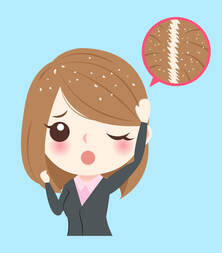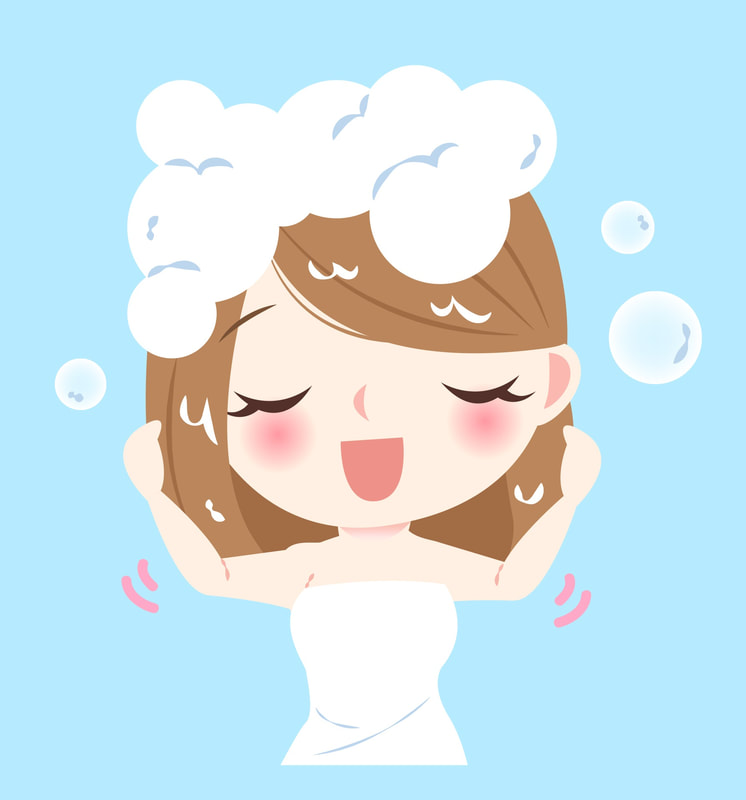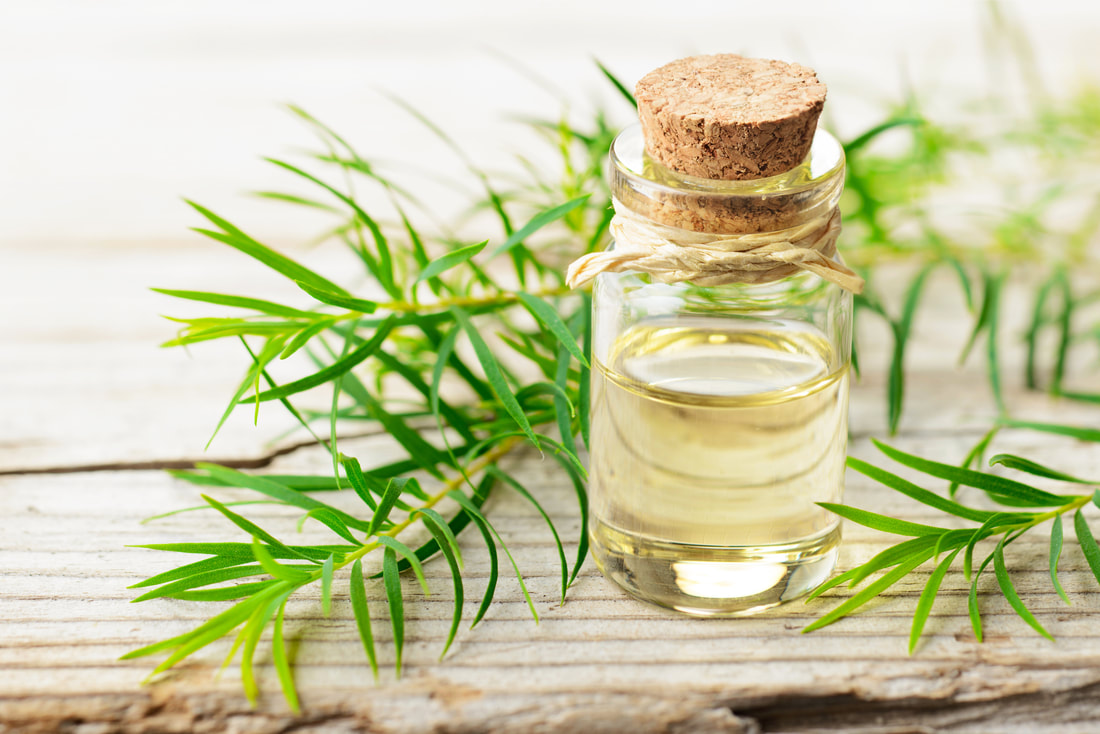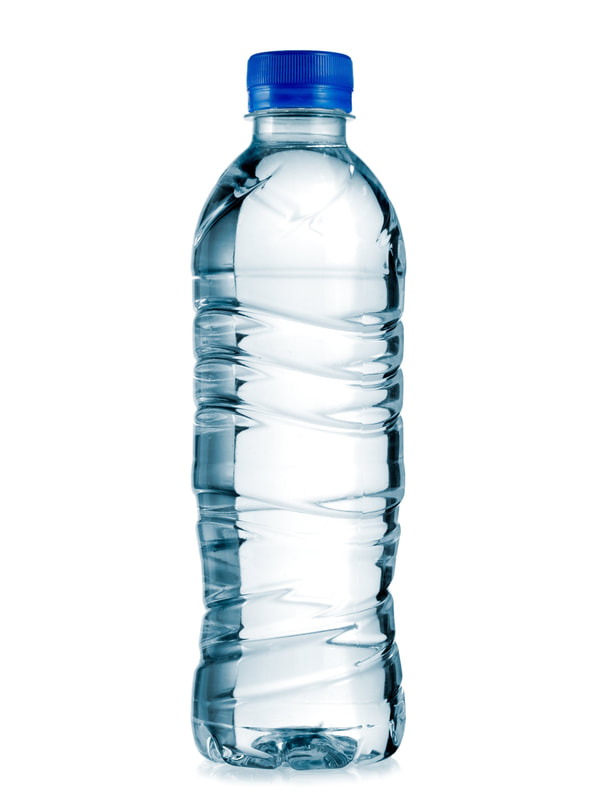Why Is My Scalp Flaky?
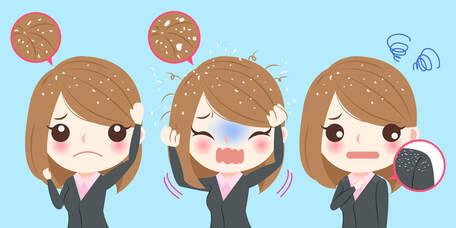
If you have an itchy scalp and your shirt is covered in flakes, you may suspect dandruff and would likely run out to purchase a dandruff shampoo as quickly as possible. But did you know that you could simply have dry scalp and even though dandruff and dry scalp have the same main symptoms – flakes and unbearable itchiness - they are two different conditions and should be treated differently as well?
What is dandruff?
Dandruff symptoms are clumpy, oily, large flakes that are yellow or white, an itchy scalp, and red scaly skin. According to the American Academy of Dermatology, researchers do not fully understand what causes it, but many doctors believe there are a few likely culprits. Carlos Wesley, cosmetic surgeon and hair loss specialist in New York City tells Glamour "Dandruff is caused by an overproduction of oil or other secretions in the skin…”. The oil on your scalp (technically called sebum - you can read more about it in How Often Should You Wash Your Hair?) blocks dead skin cells from shedding like they normally would. The blockage creates dandruff.
Dr. Wesley goes on to say another potential cause of dandruff can be an increase in normal skin yeasts. For example, a fungus called malassezia normally lives on your scalp and can be affected by hormones, age, and stress. Too much malassezia causes skin cells to multiply more quickly than usual, causing dandruff. Pityrosporum ovale is also a yeast-like fungus that is part of your normal skin flora and believed to contribute to dandruff conditions.
What is dry scalp?
|
Dry scalp most often happens when your skin doesn’t have enough moisture. Factors like cold dry air, dehydration, sunburn, a reaction to hair products, and age can cause the skin on your scalp to become irritated and flake off. Dry scalp flakes are smaller and much drier compared to the large oily flakes of dandruff. When suffering from dry scalp, you will likely see dry skin on other parts of your body as well.
|
Take a closer look at your scalp and flakes….
If you have dandruff symptoms:
Again, if you have clumpy, oily, large flakes that are yellow or white, an itchy scalp, and red scaly skin - it’s likely you have dandruff. Some factors that can increase the risk of dandruff include genetics, hormonal changes (like puberty and menopause), excess alcohol consumption, eating spicy or high-sugar/high-salt foods, lack of fatty acids, climate changes, and stress.
Again, if you have clumpy, oily, large flakes that are yellow or white, an itchy scalp, and red scaly skin - it’s likely you have dandruff. Some factors that can increase the risk of dandruff include genetics, hormonal changes (like puberty and menopause), excess alcohol consumption, eating spicy or high-sugar/high-salt foods, lack of fatty acids, climate changes, and stress.
Dandruff is not curable and usually comes and goes. Some cases of dandruff require a prescription-strength shampoo containing pyrithione zinc (or ZPT), coal tar, or selenium sulfide. But, a number of over-the-counter treatments integrate these same ingredients into gentle daily use formulas to help you manage flare-ups:
|
|
Shampoos containing tea tree oil can also be a more natural alternative for dandruff as tea tree oil has natural antifungal properties. A 2002 study showed that a 5% tea tree oil shampoo showed a 41% improvement in dandruff severity.
|
If you’re not sure which shampoo to use or how often to use it, ask your doctor or pharmacist for advice. It’s also important to know, there are other medical conditions that may be mistaken for dandruff. Board-certified dermatologist Adam J. Friedman, MD, FAAD, assistant professor of dermatology and director of dermatologic research at Albert Einstein College of Medicine says “…sometimes the flaking and itching that appears like dandruff is actually a medical condition, such as seborrheic dermatitis, psoriasis, fungal infections of the scalp, or eczema.”
If you’ve tried a dandruff shampoo for at least a month and your flakes haven’t improved, they’re getting worse, or the skin on your scalp looks red or swollen, make an appointment with a dermatologist.
If you have dry scalp symptoms:
|
If you have smaller, dry flakes, an itchy scalp, and dry skin on other parts of your body, it’s time to hydrate! Simply drinking more water can go a long way to improve your dry skin and scalp. Shampoo your hair less and use a nourishing shampoo. Avoid using hair colors or products that contain harsh chemicals, like bleach and alcohol.
DO NOT use a dandruff shampoo as the ingredients designed to reduce oil and fungus can further dry out your already parched skin and cause more irritation. |
Stylists comment: Be careful when using shampoo that contains coal tar or selenium sulfide. These shampoos can discolor light hair. Tar shampoo also has the potential to make your scalp more sensitive to sunlight so protect your scalp from the sun by wearing a hat when outdoors.

